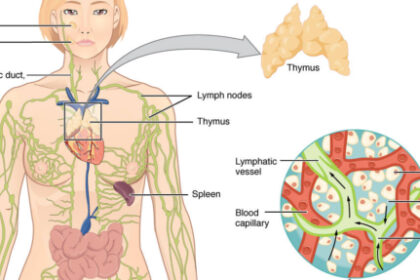Calcium is an essential mineral that plays a vital role in bone health, muscle function, nerve signaling, and heart rhythm. Many people take calcium supplements hoping to strengthen their bones and prevent osteoporosis. However, experts warn that calcium supplements can actually do more harm than good if taken in excess or without the necessary cofactors.
In this article, we will break down the potential dangers of calcium supplementation and explain why it’s better to get calcium naturally from food sources. Calcium buildup in the body can lead to plaque formation, restricting blood flow, stiff joints, erectile dysfunction, and added stress on the heart. But with the right balance of vitamins D3 and K2, magnesium, phosphorus, and potassium, calcium can be properly utilized. We’ll outline the ideal daily calcium intake, provide a checklist of cofactors to ensure safe calcium metabolism, and explain how certain supplements can disrupt this delicate balance. By becoming an informed consumer and checking labels, you can avoid the pitfalls of calcium supplements and harness the true benefits of this mineral. A healthy diet and lifestyle is the safest way to build strong bones and optimize calcium levels.
7 Reasons To Avoid Certain Calcium Supplements
- Excess calcium can build up in the body and lead to plaque production. This plaque can restrict blood flow and cause issues like arthritis, erectile dysfunction, and heart problems.
- Calcium needs vitamins D3 and K2 to properly absorb. Without adequate levels of these vitamins, calcium will not metabolize correctly.
- Calcium requires a balance of other key minerals like magnesium, phosphorus, and potassium. These minerals help calcium absorb and distribute to the right places like bones and heart tissue.
- If you are deficient in nutrients like vitamin D3, K2, magnesium, potassium, and phosphorus, taking a calcium supplement can lead to unhealthy calcium accumulation and plaque buildup.
- It’s better to focus on getting sufficient co-factor nutrients first before taking a calcium supplement. Get sunshine for vitamin D3. Eat foods with vitamin K2 like meat, eggs, and mushrooms.
- Use topical magnesium oil on stiff joints to help soften tissues and improve mobility and flexibility.
- Only take a calcium supplement if you know your levels of vitamin D3, K2, magnesium, potassium, and phosphorus are already healthy. Otherwise, excess calcium may not metabolize properly.
How Much Calcium Do I Need?
The amount of calcium you need each day depends on your age and sex. Average daily recommended amounts are listed below in milligrams (mg).
Life Stage Recommended Amount
- Birth to 6 months 200 mg
- Infants 7–12 months 260 mg
- Children 1–3 years 700 mg
- Children 4–8 years 1,000 mg
- Children 9–13 years 1,300 mg
- Teens 14–18 years 1,300 mg
- Adults 19–50 years 1,000 mg
- Adult men 51–70 years 1,000 mg
- Adult women 51–70 years 1,200 mg
- Adults 71 years and older 1,200 mg
- Pregnant and breastfeeding teens 1,300 mg
- Pregnant and breastfeeding adults 1,000 mg
What Foods Provide Calcium?
Doctors recommend that you do your best to get your calcium from the foods you consume. And thankfully, calcium is found in many foods. You can get recommended amounts of calcium by eating a variety of foods, including the following:
- Broccoli – One cup of raw broccoli has about 40 mg of calcium. Both the florets and stalks contain calcium.
- Almonds – A quarter cup of raw almonds provides about 95 mg of calcium. Choose organic raw almonds for the most nutrients. Make sure to get these as organic as they are high in pesticides if not.
- Beans – White beans, chickpeas, navy beans, and other varieties contain around 100 mg of calcium per cup when cooked.
- Figs – Dried Calimyrna figs provide around 120 mg of calcium per quarter cup. Other dried fig varieties also contain calcium.
- Oranges – One large navel orange contains about 60 mg of calcium. The calcium is found in the white pith beneath the peel.
- Blackstrap Molasses – Just one tablespoon of blackstrap molasses contains about 170 mg of calcium as well as iron, magnesium, and potassium.
- Amaranth – This gluten-free ancient grain delivers about 100 mg of calcium per cooked cup.
What Do I Need To Know About Buying A Calcium Supplement
Calcium is found in many multivitamin/mineral supplements, in calcium supplements, and in supplements that contain calcium and other nutrients such as vitamin D. Check the Supplement Facts label to determine the amount of calcium in the supplement.
The two main forms of calcium in dietary supplements are calcium carbonate and calcium citrate. Calcium carbonate is absorbed best when taken with food. Some over-the-counter antacids, such as Tums and Rolaids, also contain calcium carbonate.
Calcium citrate is absorbed well on an empty stomach or a full stomach. People with low levels of stomach acid—a condition most common in older people—absorb calcium citrate more easily than calcium carbonate.
Other forms of calcium in supplements and fortified foods include calcium sulfate, calcium ascorbate, calcium microcrystalline hydroxyapatite, calcium gluconate, calcium lactate, and calcium phosphate.
Calcium is absorbed best when you take 500 mg or less at one time. If you take 1,000 mg/day of calcium from supplements, for example, it is better to take a smaller dose twice a day than to take it all at once.
Calcium supplements might cause gas, bloating, and constipation in some people. If you have any of these symptoms, try spreading out the calcium dose throughout the day, taking the supplement with meals, or switching the form of calcium you take.
There are several key vitamins that are important to take along with calcium supplements to help with proper absorption and utilization:
- Vitamin D: Vitamin D helps significantly increase absorption of calcium. Most calcium supplements also contain vitamin D for this reason. Getting adequate vitamin D from sunlight, food, or supplements is crucial. I will also take vitamin D from Surthrival.com. Click here to visit Surthrival.com. Use the discount code: HealthyWildFree to get 10% off this Vitamin d3 + k2 at checkout.
- Vitamin K: This fat-soluble vitamin reduces calcium buildup in arteries and soft tissues, directing it into bones and teeth instead. Vitamin K1 from leafy greens and K2 from fermented foods are important.
- Vitamin C: This helps improve calcium absorption. Vitamin C is also needed for collagen production which supports bone matrix formation. I take a whole food vitamin C supplement from Paleovalley. Click here to get 15% off the best whole food vitamin C supplement that I’ve found.
- Magnesium: Magnesium balances calcium levels and competes for absorption. Supplemental magnesium (like citrate or glycinate) prevents excess calcium uptake.
- Boron: Boron is a trace mineral that works with vitamin D to retain and utilize calcium. Just 3 mg per day can improve calcium and magnesium absorption.
- Vitamin B6: This B vitamin may support bone health by aiding in collagen crosslinking. Low levels of B6 are linked to higher fracture risk.
Additionally, sufficient protein, phosphorus, zinc, copper, and manganese are also important for building bone and optimizing calcium levels in tissues. A whole food multi-vitamin or specific bone health formula can provide these nutrients.
Avoid Supplements All Together And Try Organic Kelp Powder
Kelp is an excellent vegan and gluten-free source of calcium and other important nutrients. Here are some of the key benefits of the calcium found in kelp:
- Kelp is a type of seaweed that contains a good amount of highly absorbable calcium – about 150 mg per 1/2 cup when dried. This makes it an ideal calcium source for those avoiding dairy.
- The calcium in kelp is attached to natural carbohydrates which enhances its absorption compared to calcium supplements.
- Kelp is nutritionally well-rounded, providing iodine, magnesium, iron, folate, potassium, and more. This nutrient synergy helps the calcium absorb properly.
- It also contains vitamin K which is needed for proper calcium utilization in bones and tissues. The vitamin K in kelp can help reduce calcium buildup in arteries.
- Additionally, kelp is rich in antioxidants which provide anti-inflammatory benefits and bone protecting effects.
- Dried kelp can be sprinkled on dishes, added to broths and soups, blended into smoothies, or soaked and eaten as a snack.
So for those on a plant-based or gluten-free diet, kelp is an excellent way to obtain well-absorbed and bioavailable calcium along with a range of other protective nutrients. The nutritional profile supports proper calcium metabolism in the body.
Click Here To Check Out Starwest Botanicals Organic Kelp Powder
Calcium is clearly an essential mineral that we need to get adequate amounts of for bone health, muscle function, and more. However, calcium supplements come with some potential downsides and interactions that require caution. The buildup of excess calcium in the body can lead to issues over time.
Rather than rushing to take a calcium supplement, it is best to focus first on getting enough calcium from natural food sources. Aim to eat a variety of dairy products, leafy greens, beans, nuts, seafood, and other real foods that provide calcium. Ensure you are also getting sufficient magnesium, phosphorus, potassium, vitamin D3, and vitamin K2 to properly utilize calcium. These nutrients work synergistically for ideal absorption and distribution of calcium in the body.
Evaluate your individual risk factors, such as menopause or lactose intolerance, and have your levels checked if concerned. Only then consider a calcium supplement if needed, in its proper whole food form and balance with cofactors. Harnessing the benefits of calcium while avoiding excess is key. A nutrient-dense diet paired with other lifestyle factors like regular exercise, adequate vitamin D, and stress management is the ideal approach for long-term bone health and calcium balance.





